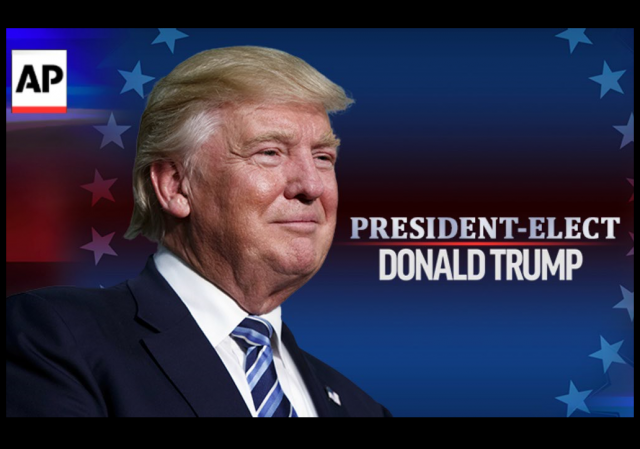Sanctuary Cities Revisit City Budgets Before Trump Takes Office

The nation’s largest sanctuary cities, San Francisco and New York City, are busily revisiting their budgets in anticipation of President-elect Trump taking office and making good on his pledge to slash federal monies sanctuary cities currently receive.
From the federal government, San Francisco gets a billion dollars each year, and New York City gets approximately $7 billion each year. For some perspective, NYC receives more money from the federal government than the state budgets for Delaware ($4.1 billion), Mississippi ($6.4 billion), New Hampshire ($5.7 billion), Oklahoma ($6.8 billion), South Dakota ($4.5 billion), and Vermont ($5.8 billion).
San Francisco is struggling with budget-related problems already, and with Trump’s threat of withdrawing up to a billion federal tax dollars, the city is anticipating further budget issues.
The San Francisco Chronicle reports:
It seems like San Francisco — the center of the nation’s tech boom and the strong economy and tax revenues that come with it — went overnight from being flush to having serious financial constraints.The combination of a ballot measure to increase the sales tax that failed, threatened federal cuts from President-elect Donald Trump and a projected $5 billion pension shortfall means City Hall officials are now considering actions that would have seemed unthinkable just three weeks ago.Among them: redirecting new revenue generated by the just-passed soda tax from health programs to homeless services, ending the Twitter tax break that was designed to draw tech companies to the city, annulling a voter-approved charter amendment to pay for street tree maintenance and not spending the money to make City College free.
New York City under its hapless socialist mayor is experiencing skyrocketing homeless rates, out-sized and underperforming pensions, and astronomical spending on social programs.
Add to that the expected loss of some chunk of the $7 billion dollars the federal government sends to NYC, and the budget situation becomes even more dire.
Officials are conducting an urgent review of the billions of dollars that New York City receives each year from the federal government to identify the streams of money that may be most at risk once President-elect Donald J. Trump takes office.
Mr. Trump, a Republican, has threatened to punish cities that defy his efforts to deport undocumented immigrants, and there is also concern that the Republican-controlled Congress may seek to slash longstanding aid programs.
“There’s urgency because the threat seems greater than it’s been,” said Tony Shorris, the first deputy mayor, referring to the effort to identify which programs may be most at risk. “There’s also uncertainty because the lack of clarity is much greater than it’s been.”
Mr. Trump has said he will cut financing to so-called sanctuary cities that move to protect undocumented immigrants or refuse to cooperate with federal deportation efforts.
San Francisco and New York City are not the only sanctuary cities defiantly insisting they will continue to ignore federal law. Sante Fe and Chicago are also facing potential federal dollar losses in the millions.
Santa Fe stands to lose about $6 million in federal funding, or about 2% of its annual budget, city officials said.Nevertheless, Mayor Javier Gonzales has pledged to stand by his city’s sanctuary status.
. . . at least until the loss of federal dollars makes him rethink that position:
CNN continues:
. . . . Days after Trump’s election, Chicago’s mayor Rahm Emanuel said in a press release there was “a sense of uncertainty among many immigrant communities in Chicago and across the nation.”He reiterated that Chicago would remain a sanctuary city and said the city’s 311 operators had been given special training to answer people’s questions. “Chicago has been a city of immigrants since it was founded. We have always welcomed people of all faiths and backgrounds, and while the administration will change, our values and our commitment to inclusion will not,” he said.
Chicago could lose up to $29 million in annual justice grants alone; Chicago stands to lose more than $1 billion. Chicago’s mayor, however, is not revisiting his budget; he does not believe that Trump will follow through on his promise to defund sanctuary cities.
“I don’t believe they’ll do it, because that would mean every major city in the United States would be targeted, and that’s not what an administration will do,” Emanuel said after a City Council meeting.”When you’re in the White House, it is incoming,” said Emanuel, who worked in the Clinton and Obama administrations. “When they look at all the things they want to get done and all the battles that will be coming — whether the battles they initiate and the ones that come to them — they will make a choice that this is not the battle they want to take on because they have bigger fish to fry, mark my words.”Trump has pledged to deport millions of immigrants living in the country illegally. The Justice Department released a memo in May saying Chicago could stand to lose nearly $29 million in annual justice grants if found to be in violation of federal laws on detaining people to be turned over for possible deportation. On Wednesday, the mayor declined to say what he would do if Trump takes away that money, calling it a hypothetical that wouldn’t happen.
Meanwhile, Governor Abbott in Texas is taking on sanctuary cities at the state level, and Senators Pat Toomey (R-PA) and Ted Cruz (R-TX) have sponsored legislation aimed at defunding sanctuary cities and stopping illegal reentry (Kate’s Law).
CLICK HERE FOR FULL VERSION OF THIS STORY